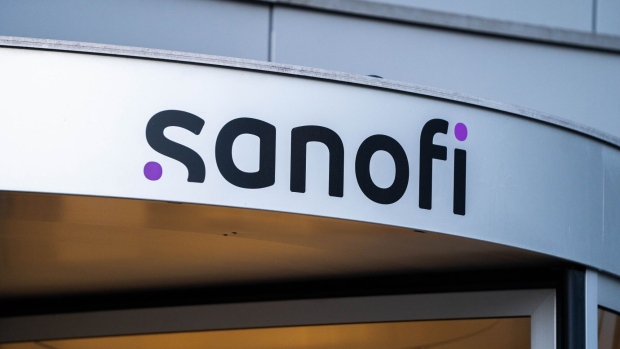Jan 23, 2024
Sanofi to Buy Biotech Firm for $2.2 Billion in Innovation Push
, Bloomberg News

(Bloomberg) -- Sanofi agreed to buy the US biotech Inhibrx Inc. for as much as $2.2 billion, giving the French drugmaker a potential therapy for a genetic disorder that affects the lungs and liver.
The acquisition is the latest in a string of small- and mid-sized deals as Sanofi looks to double down on innovative medicines and reduce its reliance on the blockbuster asthma medicine Dupixent.
Chief Executive Officer Paul Hudson has heralded a new era of cutting-edge research and development at the company, emulating rivals like Novartis AG and Roche Holding AG. The transaction fits with his efforts to bolster Sanofi’s pipeline with new promising medicines in areas such as immunology and rare diseases.
Hudson faces pressure to show that his plan for Sanofi to spend significantly more on drug development in the coming years is the right tactic. When he first unveiled the new goal — which required abandoning old profit targets — it angered some shareholders and wiped out about $25 billion in market value.
While the shares have rallied since, they have not fully recovered and were trading down about 1.5% on Tuesday. Inhibrx surged 11% in trading before US exchanges opened.
The transaction will likely add to Sanofi’s research spending because the experimental drug called INBRX-101 is just moving into mid-stage clinical testing, meaning it’s a long way from reaching pharmacy shelves.
Inhibrx shareholders will get $30 per share as part of the deal, along with the right to receive $5 in cash if the experimental drug meets a regulatory milestone. The California biotech’s founder and CEO, Mark Lappe, will run a spinoff with the rest of the research and the employees that Sanofi will help capitalize, the companies said.
Sanofi is acquiring all the assets and liabilities associated with INBRX-101, a therapy for treating patients with alpha-1 antitrypsin deficiency. People with the genetic disorder produce low levels of a protein that helps protect the lungs, raising the risk of damage from smoking, pollution and dust.
‘Enhanced Potential’
Sanofi expects to fund the transaction with available cash resources. The deal comes as the firm snaps up promising assets in the immunology, gene therapy and rare-disease fields, amid a renewed rush for deals in the biotech space.
La Jolla, California-based Inhibrx’s lead therapy was granted fast-track review last May and attempts to treat the most common genetic cause of liver disease in children.
Sanofi’s presence in blood disorders “enhances the commercial potential of the drug,” Thibault Boutherin and colleagues at Morgan Stanley wrote in a note.
Read More: Biotech Deal Surge Dials Up Buzz at JPMorgan Health Conference
Sanofi’s best-seller Dupixent has shown promising trial results in a lung condition called chronic obstructive pulmonary disease, or COPD, one of the conditions that can affect people with alpha-1 antitrypsin deficiency.
The company has said its plans to raise spending on research and development will lead to a 50% increase in the number of late-stage clinical trials in 2024 and 2025.
New products Sanofi is working on include Altuviiio for hemophilia and Tzield for type-1 diabetes. The company’s more promising experimental medicines include amlitelimab for treating atopic dermatitis, a chronic skin condition, and frexalimab to target, among other things, multiple sclerosis.
Read More: Sanofi CEO Defends Extra Spending, Ramping Up Revenue Forecast
--With assistance from Lisa Pham and Phoebe Sedgman.
(Updates with Inhibrx shares in sixth paragraph)
©2024 Bloomberg L.P.


